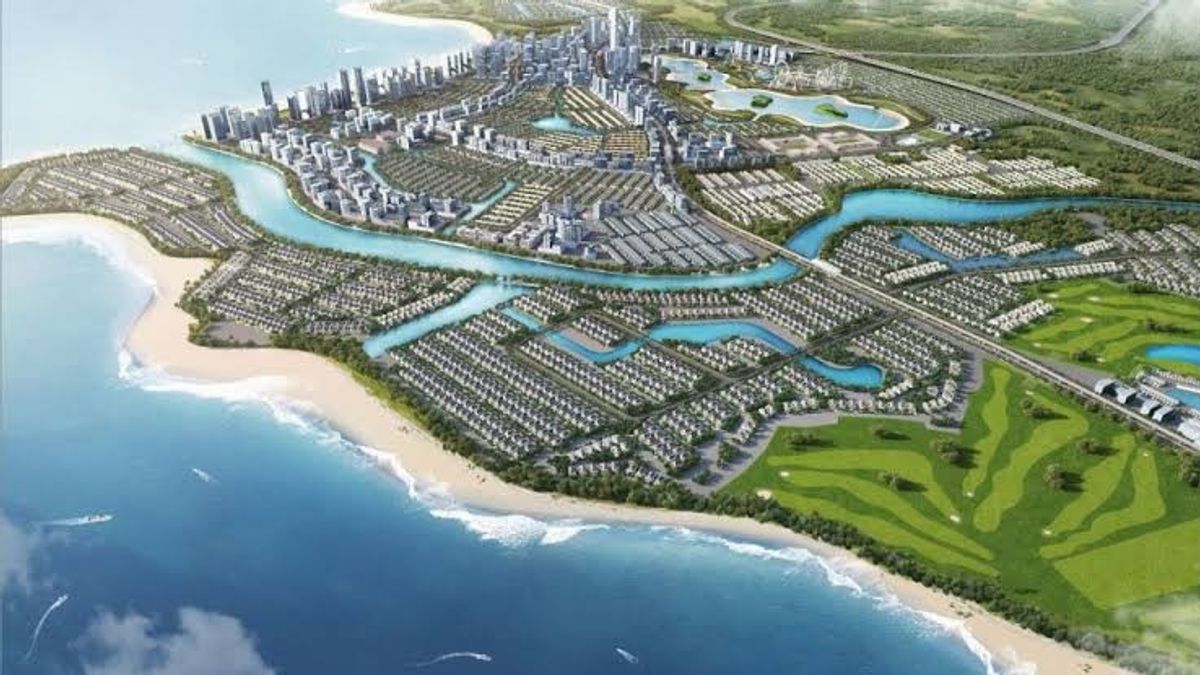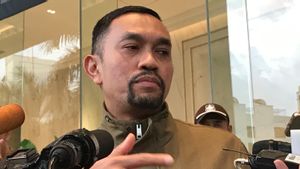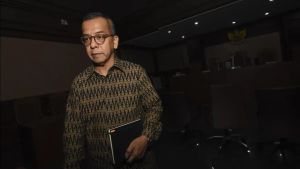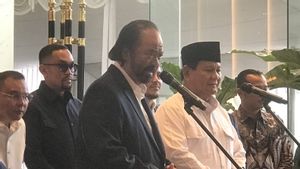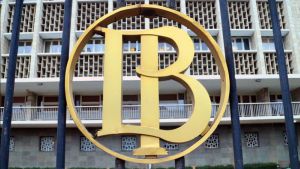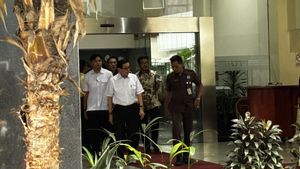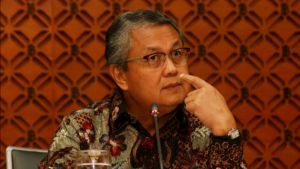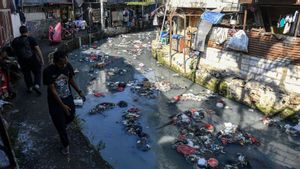JAKARTA - The government continues to accelerate the provision of infrastructure to increase community economic activity in overcoming development inequality between regions, as well as encouraging national economic development and growth.
Meanwhile, one of the main policies that is the basis for regional development-based economic development, especially infrastructure transformation, is the prioritization of infrastructure programs/projects through the National Strategic Project (PSN).
Spokesperson for the Coordinating Ministry for the Economy Haryo Limanseto said PSN is a project that has high investment value and has a broad economic impact such as roads, ports, trains, airports, dams, energy, electricity, health, and telecommunications sectors.
"The PSN coverage itself is not only focused on physical infrastructure development, but also ensures an increase in economic equity, food supply, border development, technology, tourism to education," he said in his official statement, Sunday, March 24, 2024.
In an Internal Meeting chaired directly by the President of the Republic of Indonesia Joko Widodo and attended by related Ministers at the State Palace on Monday, March 18, 2024, in addition to discussing the progress of the implementation of the National Strategic Project (PSN) until mid-March 2024 and the completion of the PSN, which specifically required direction, also resulted in approval of 14 (fourteen) new PSN proposals.
All new PSN approved, all the financing comes from private investors and does not need APBN support and is aimed at supporting policies to accelerate downstreaming, support connectivity, support national and regional economic development and equity, create jobs, and gain support from sector ministries.
Furthermore, Haryo said that every submission of PSN proposals must be supported by a Letter of Commitment of the Minister/Head of Institutions, Funding Plans, Study Results, and Action Plans which will then be evaluated with a number of basic criteria, strategic criteria, and operational criteria.
In addition, the results of this evaluation will then become the meeting material for the Steering Committee for the Acceleration of Priority Infrastructure Provision (KPPIP) before being submitted further to the President.
SEE ALSO:
Haryo explained, this makes all Ministries/Institutions, Regional Governments, and BUMN/BUMD possible to propose a new PSN proposal and shows that the PSN status has received a complete study of all aspects of all stakeholders.
The development of the 14 new PSNs was carried out in a number of areas, namely in the Riau Islands, Banten, DKI Jakarta, West Java, East Java, East Kalimantan, Central Sulawesi, and Southeast Sulawesi.
In addition, the 14 new PSN consists of 8 Industrial Estates, 2 Tourism Areas, 2 Toll Roads, 1 Educational Area, Research and Technology, Health, and 1 Offshore Oil and Gas Project.
One of the new PSN developed by the Government is the Development of Green Areas and Eco-City at PIK 2 locations located in Banten Province. The development of green-based areas with an area of approximately 1,756 Ha is called "Tropical Coastland" and is intended as a new green-based tourism destination to increase attractiveness for tourists.
Meanwhile, this tourism destination is also designed to accommodate the Mangrove Tourism Area, which is a natural coastal security mechanism. This project with an investment value of around IDR 65 trillion is expected to absorb around 6,235 direct workers and 13,550 workers as a multiplier effect.
In addition, the PIK 2 area will later be connected to the Kamal-Telukana-Rajeg Toll Road which was started in 2023.
Haryo said the Green Area and Eco-City Development project was supported directly by the Minister of Tourism and Creative Economy taking into account the proposed location is very strategic because it is close to the Thousand Islands and Old Town National Tourism Strategic Areas (KSPN) Sunda Kelapa, can open up business and investment opportunities, as well as create jobs for people in Banten Province and its surroundings.
Furthermore, Haryo conveyed that the development of tourism and the creative economy in the PIK 2 Tropical Coastland area was financed with non-APBN sourced funds, as well as a commitment from the Procedure Business Entity to carry out gradual development with the plan to open phase I in the form of lakes and places of worship as Bhineka Park Tourism destinations no later than the 3rd quarter (Q3) of 2024.
In addition, the new PSN that will be developed by the Government is the Development of the Bumi Serpong Damai Integrated Area which is estimated to absorb an investment of IDR 18.54 trillion.
Haryo said this project was supported by the Minister of Health who had issued a Letter of Recommendation for the Development of Special Economic Zones in the BSD City Area.
The development of the Integrated Area in Bumi Serpong Damai was not carried out in the entire BSD area, but only for areas with an area of about 59.6 Ha.
"The development of the area will focus on Digital Biomedicals Education. This project is in line with the plan to develop an Integrated Biomedical Campus in the area to support programs to develop quality education and quality health care (medical) nationally," he explained.
Haryo explained that this area will also be developed into a Special Economic Zone (SEZ) that develops Education, Health Research, Digital Economy, Technology Development, Health and Biomedical Services.
"The Biomedical Area development in BSD is targeted for the next 30 years. For the first milestone in 2024, namely with the Grand Opening BioMedical Campus in 2024," he said.
Furthermore, Haryo said that the area prepared as SEZ 1 (east security) has now been passed by the Serpong Balaraja Toll Road and the SEZ 2 (west disaster) area will also be passed by the Serpong Balaraja section 1B Toll Road.
Haryo said that this project is also expected to be able to absorb 10.065 people directly or indirectly with an estimated foreign exchange savings of IDR 10.1 trillion and foreign exchange gain of IDR 5.6 trillion from the development of health and Biomedical services.
The English, Chinese, Japanese, Arabic, and French versions are automatically generated by the AI. So there may still be inaccuracies in translating, please always see Indonesian as our main language. (system supported by DigitalSiber.id)
